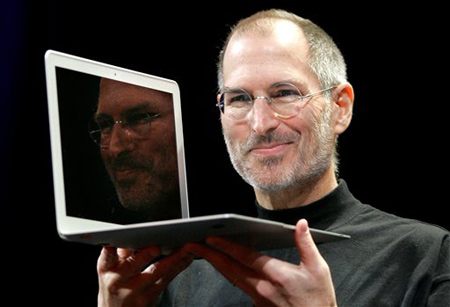
Get the world’s most fascinating discoveries delivered straight to your inbox.
You are now subscribed
Your newsletter sign-up was successful
Want to add more newsletters?

Delivered Daily
Daily Newsletter
Sign up for the latest discoveries, groundbreaking research and fascinating breakthroughs that impact you and the wider world direct to your inbox.

Once a week
Life's Little Mysteries
Feed your curiosity with an exclusive mystery every week, solved with science and delivered direct to your inbox before it's seen anywhere else.

Once a week
How It Works
Sign up to our free science & technology newsletter for your weekly fix of fascinating articles, quick quizzes, amazing images, and more

Delivered daily
Space.com Newsletter
Breaking space news, the latest updates on rocket launches, skywatching events and more!

Once a month
Watch This Space
Sign up to our monthly entertainment newsletter to keep up with all our coverage of the latest sci-fi and space movies, tv shows, games and books.

Once a week
Night Sky This Week
Discover this week's must-see night sky events, moon phases, and stunning astrophotos. Sign up for our skywatching newsletter and explore the universe with us!
Join the club
Get full access to premium articles, exclusive features and a growing list of member rewards.
America is becoming a nation of booklovers. Notebooks, netbooks and smartbooks, that is, if you believe the computer manufacturers.
Unfortunately, the names and descriptions for these mobile computing devices have become somewhat interchangeable, generating a fair amount of consumer confusion. In terms of buzz, notebooks are yesterday's news. Last year the Next Big Thing was the netbook; this year it's the smartbook. What's the difference?
Notebooks
Notebooks, the senior citizens of mobile computing, are the slimmed-down laptop siblings that have become the road warrior's badge of honor. Steven Ostrowski, director of corporate communications for CompTIA, a global IT trade association, offers a more formal definition:
A notebook, is "an extremely lightweight PC, typically weighing less than 6 pounds and often compact enough to easily fit into a briefcase," Ostrowski said.
"Aside from portability and size, the biggest difference between a notebook computer and a desktop PC is the display screen," he said. "In terms of computing power, modern notebook computers are nearly equivalent to PCs."
Netbooks
Get the world’s most fascinating discoveries delivered straight to your inbox.
The weight of a notebook can cause a lot of wear and tear on the shoulders, which is one reason why mobile workers joined the netbooks land rush. Also call mini notebooks, ultra portables or sub-notebooks, these small, light and inexpensive laptop computers are used for general computing and for access to web-based applications. Tawain-based ASUS is considered the pioneer in bringing this category to the masses.
For many users netbooks are seen as a companion device that augments another, more robust desktop or laptop computer, Ostrowski said. "When first introduced, netbooks featured smaller screens and keyboards; often had reduced specification and computing power, and lacked key features, such as optical drives. They've since grown in size and features, often blurring the distinction between a netbook and notebook computer."
A netbook's display typically ranges from 7 to 10 inches. It weighs less than 3 pounds, and supports a keyboard that is reduced in size. Netbooks have built-in Wi-Fi, Ethernet, USB ports and slots for flash memory cards.To keep the devices small and compact, netbooks do not have a CD or DVD drive, and many use solid-state flash drives instead of hard drives for storage. Flash drives, like the ones you use to store photos on your camera, have no moving parts so they’re less likely to break, and are smaller than regular hard drives, which saves space and weight.
Smartbooks
Smartbooks are the newest book on the block, taking several star turns at the Consumer Electronics Show in Las Vegas this year, including the introduction of HP's Slate and Lenovo's Skylight. Smartbooks combine features of both a smartphone and a netbook computer in a device that's mobile like a phone, yet comes in a laptop-style body with a screen that's 5 to 10 inches in size. Other features include extended battery life, 3G connectivity and GPS capability.
Qualcomm, the world's largest cellphone chip supplier, has a lot invested in the smartbooks game. Its Snapdragon line of chipsets power the new Nexus One smartphone by Google as well as Lenovo's new smartbook.
"A smartbook melds together the best of a netbook and the best of a smartphone," said Mark Frankel, VP of product management for Qualcomm CDMA Technologies. "It's always on, always connected." And it has long battery life, 8 to 12 hours, according to Frankel.
Aside from the early adopters, who rush to retailers when any new tech product is released, Frankel thinks that smartbooks will initially win over the consumer side of the market.
"This is a group that likes multimedia and social networking, is interested in always being connected and having real-time information flow, " Frankel told TechNewsDaily. "They want to have that presence with them as much as they can. When they walk out the door and don't have this type of information and mobile Internet access, they feel naked."
But he thinks that business users will be converted soon, too. "If I'm a lawyer and have a 150-page contract to develop, I'll probably do that at my desk," he said. "But when I have to go across the country to negotiate it at my client, I'd much rather have a smartbook with me."
 Live Science Plus
Live Science Plus










